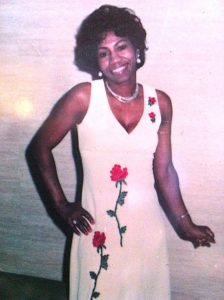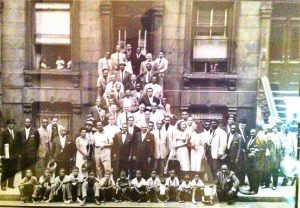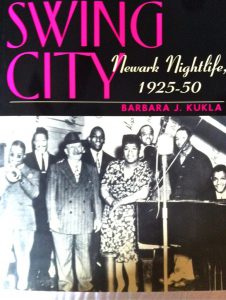Hi lovely Earthlings,
You know how prejudiced yours truly is against monogamy. “Monogamy is all about exclusion,” her mind goes! So, let’s exclude monogamy and we can be inclusive then. Same applies to religion, no? Monotheism is what drives the cultural wars. So, let’s be pagan instead. We can include however many deities and there will be no wars! Well, when she read the poems in this series she realized the cost of this prejudice.
This series, “What Is Mono?” includes poems from unpublished collections by Alice E. Van Pelt. This woman was the mother of yours truly’s beloved, a friend we’ll call Eros. He is devotional, magical, and absolutely inclusive in his love. Alice was Eros’s confidante and favorite parent. She left a legacy of poems and yours truly offered to take it on as form of devotion to Eros and his loss.
The Van Pelts are Presbyterians. In the North-East this denomination is not uncommon among African-Americans with deep roots in Unionist states. With its abstract, non-representational sense of the sacred, its exigent work ethic, it was probably a belief system that sustained them better in the industrialized economy of the Eastern Seaboard. Alice’s poetry is very religious, and very inspiring in that way. There is a fervor, a devotion, that marks it as genuine, heartfelt. The words dance on the page and recollect themselves in a gentle prayer, as in the poem you’ll find below, to Alice’s two sons.
However, Alice’s vision is just so far removed from that of the African American women’s voices that have guided yours truly to first question the ideology behind the single white male deity Christians call “God.” As in, for example, Ntozake Shange’s “i found god in myself and loved her, loved her fiercely.”
What was yours truly going to do with this legacy on a blog that’s devoted questioning that belief system and supporting others who do so?
Sometimes the contradictions, the inner conflicts of our lovers help us untangle some of our own. Eros is of course not a monotheistic person at this point. And yet there is a correspondence between his magic as an artist of love and Alice’s as a wordsmith.
Yours truly often claims that monogamy is not the opposite of polyamory but just a special case of it. The number “1” just happens to be the first in an infinite series that includes it. By the same token, monotheism is just a special case of polytheism. The infinite, not the one, is where the whole resides.
“Polytheism, polyamory, are just more inclusive, that’s all,” yours truly claims. But then, does that alleged inclusiveness give one the right to exclude monotheism and monogamy–to declare them obsolete, prejudiced, or wrong?
If we who believe in poly truly believe that poly is inclusive we need to practice that by including mono, no?
So that’s how yours truly came to accept Alice’s poems. And, guess what, once she did, the poems acquired a whole new meaning.
For example, the poem to Alice’s sons below: is it only to her own two biological sons? Can it not be read as a poem to all of the “sons” Alice’s poetic voice embraces? An invocation to action, to resilience, to self knowledge, to self possession, to extending the embrace well beyond the poet’s family or denomination? As yours truly reads the poems again without prejudice against monotheism, their ecumenical, inclusive values become transparent. Their evangelical message is one of courage and awareness for the infinite that is the whole.
A LETTER TO MY SONS
To my sons this time I take
this wish from Mom’s heart I make.
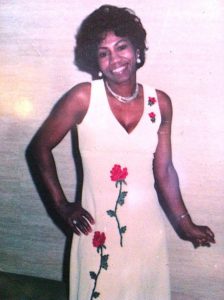 |
| Alice E. Van Pelt |
|
Remember how we came to be
part of the Negro’s history.
Shun not the struggle, for you see
we must continue this legacy.
Be strong in all you attempt to do
for God is always watching you.
There is hope for you in prayer today.
His aid is never far away.
Call upon him whenever life grows dim
and you must never abandon him.
Our strength is in the young today
and we must guide them all the way.
Be kind and loving to your brother
for there will never be another.
Since we were brought to this place
we have become a dying race.
Our blood is running in the streets
from drugs, and guns and men in sheets.
Our children are victims of the man’s oppression.
Prejudice is the oppressor’s obsession
and yet we hope for a brand new day
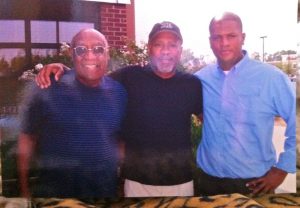 |
| Three generations in Alice’s family |
with every step along the way.
Lift your voices loud and long
remember how hard we fought, be strong.
This torch I place within your hand
carry the struggle throughout the land.
Don’t let us die in vain you see
We need to make this our legacy.
Alice E. Van Pelt
No date.
From the poetry collection of Alice E. Van Pelt, published here with permission from her descendants, gratefully acknowledged.
Dear Earthlings:
Did you notice the wisdom of these words? Alice reminds the children to stay connected and get along, to respect each other and respect themselves. She wants them to guide the young and feel connected to their legacy. History is important, and standing for justice is more important than winning. Feeling part of that force that brings hope to our worlds, that “universal energy” that the Greeks called Eros and the Christians call “God.”
And since it’s everywhere, then it may as well be a “one” that’s form to the many.
More poems from Alice coming. Stay tuned for next. We will post every Monday at noon.
Did you enjoy the post? Let us know! Yours truly appreciates your attention. The comments box is open.
Come back! And stay tuned for more wonders.
Namaste,
Serena Anderlini-D’Onofrio, PhD
Gilf Gaia Extraordinaire
University of Puerto Rico, Mayaguez
Follow us in the social media





http://polyplanet.blogspot.com
